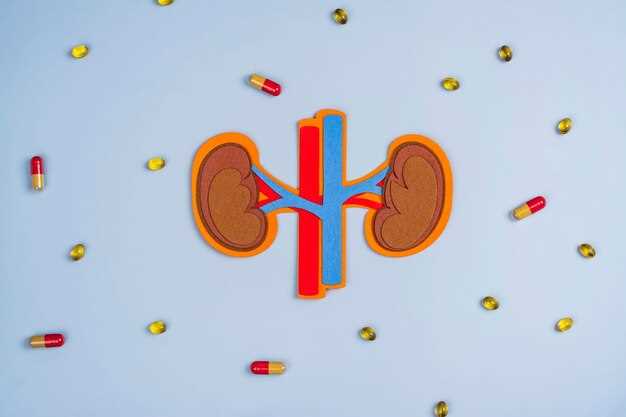
Discover a breakthrough remedy that addresses the challenges associated with renal health and ensures optimal functioning of one of the body’s vital organs. If you are seeking a reliable and solution-oriented approach for maintaining kidney well-being, look no further. Our innovative product provides a comprehensive and holistic approach to kidney care, allowing you to proactively manage your health journey.
Superior Therapeutic Aid for Your Renal System
Introducing a game-changing intervention that rejuvenates and supports your renal system, promoting its overall health and enhancing its natural resilience. This cutting-edge formula has been meticulously developed by a team of experts, leveraging groundbreaking advancements in medical science. With its unique combination of natural ingredients and clinically proven benefits, this is a powerful antidote that revitalizes your kidneys, ensuring they perform at their peak.
Unlock Optimal Kidney Function and Reclaim Your Well-being
The hectic pace of modern life, combined with various external factors, can take its toll on our bodies, including our kidneys. Our revolutionary product is specifically designed to neutralize the adverse effects of these factors, helping you maintain an active and fulfilling lifestyle. Empower yourself with the means to safeguard your kidney health and discover renewed energy and vitality.
Venlafaxine Kidney Problems: Understanding the Risks

It is crucial to have a comprehensive understanding of potential risks associated with the use of Venlafaxine, especially concerning its impact on renal health. By delving into the intricate mechanisms of this medication, individuals can gain valuable insights into how it may affect their kidney function and make informed decisions about their healthcare journey.
The use of Venlafaxine, an antidepressant medication commonly prescribed for various mental health conditions, is accompanied by potential risks that warrant attention. By comprehending the intricate nuances of the drug’s interaction with the renal system, individuals can gain a deeper understanding of the potential implications for their kidney health.
By exploring the pharmacological properties and metabolic pathways of Venlafaxine, individuals can better comprehend how this medication may impact the intricate balance of the renal system. Understanding the possible effects is essential for those who are taking or considering taking Venlafaxine, allowing them to make proactive choices regarding their renal health.
Furthermore, being aware of the signs and symptoms that may indicate Venlafaxine-related kidney issues is crucial. By familiarizing themselves with these indicators, individuals can promptly recognize potential problems and seek appropriate medical attention. Knowledge empowers individuals to take charge of their health and act as advocates for their own well-being.
| Benefits: | Risks: |
| – Improved mental well-being | – Potential nephrotoxicity |
| – Enhanced quality of life | – Altered renal function |
| – Positive impact on symptoms | – Disruption of renal homeostasis |
| – Relief from depressive symptoms | – Possible impairment of kidney function |
Ultimately, for individuals prescribed or considering Venlafaxine, it is essential to have a comprehensive understanding of the potential risks associated with this medication. By actively educating themselves on its impact on kidney health, individuals can make informed choices, engage in proactive management, and prioritize their overall well-being.
What is Venlafaxine?
Venlafaxine, commonly known by its brand name, is a medication that belongs to a class of drugs called antidepressants. It is primarily used to treat various mental health conditions, such as depression, anxiety, and panic disorders. Venlafaxine works by balancing certain chemicals in the brain, helping to improve mood and overall well-being.
The Impact on Renal Function
When discussing the effects of Venlafaxine on the kidneys, it is important to understand the potential implications for renal function. The kidneys play a crucial role in filtering waste products and regulating fluid balance in the body. They are responsible for the elimination of drugs and their metabolites from the bloodstream.
Recent studies have shown a correlation between the use of Venlafaxine and possible changes in kidney function. Although the exact mechanisms are not fully understood, it is believed that Venlafaxine may affect renal blood flow and alter the filtration process within the kidneys. These potential effects highlight the importance of monitoring kidney function in individuals taking Venlafaxine.
Understanding the Risks
While Venlafaxine is generally considered safe and effective in treating mental health conditions, it is essential for both healthcare providers and patients to be aware of the potential risks associated with its use. Regular monitoring of kidney function is recommended, especially in patients with pre-existing kidney conditions or those who are taking other medications that may interact with Venlafaxine.
It is important to note that individual responses to Venlafaxine may vary, and some individuals may experience a decline in kidney function, while others may not be affected at all. Therefore, close monitoring and open communication with a healthcare provider are crucial to ensure the well-being of patients and proactive management of any potential complications.
How Does Venlafaxine Affect the Kidneys?
When it comes to the impact of medication on our bodies, one area that often gets overlooked is the kidneys. These vital organs play a crucial role in filtering waste and toxins from our blood, ensuring that our bodies stay in balance and function properly. However, certain medications, like Venlafaxine, have the potential to affect the kidneys and disrupt their normal functioning.
Understanding the Risks
It is important to be aware of the potential risks associated with Venlafaxine and its impact on kidney health. Research suggests that prolonged use or high doses of Venlafaxine may lead to kidney damage or impairment in some individuals. This can manifest as a decrease in kidney function or the development of kidney disease.
Signs and Symptoms
Recognizing the signs and symptoms of Venlafaxine-related kidney problems is crucial for early detection and intervention. While each individual may experience different symptoms, common indicators include changes in urinary patterns, such as increased frequency or decreased volume, blood in the urine, swelling in the legs or ankles, and persistent fatigue or weakness. If you notice any of these symptoms, it is important to consult with your healthcare provider for a thorough evaluation.
By staying informed about the potential impact of Venlafaxine on kidney health and recognizing the signs and symptoms of kidney problems, you can take proactive steps to protect your renal function and overall well-being.
Signs and Symptoms of Kidney Dysfunction Related to the Usage of Venlafaxine
Exploring the effects of certain medications on the vital organs can provide a comprehensive understanding of the potential risks associated with their usage. When it comes to Venlafaxine, it is crucial to be aware of the indicators that may suggest the presence of kidney dysfunction or impairment. Identifying these signs and symptoms at an early stage can help individuals prevent further complications and seek appropriate medical intervention.
One of the common manifestations of Venlafaxine-related renal issues is an altered urine output. This may include changes in the frequency of urination, ranging from significantly increased to decreased output. Individuals may also experience difficulties in initiating or maintaining a steady flow of urine, indicating possible kidney impairment.
In addition, individuals may notice significant changes in the appearance of their urine. It may appear cloudy or foamy, indicative of the presence of excessive proteins or other substances that are normally filtered by the kidneys. Furthermore, the urine may contain an unusual odor, signaling potential chemical imbalances within the kidneys.
People who are experiencing kidney dysfunction related to Venlafaxine usage may also go through episodes of back or abdominal pain. This discomfort can range from dull and aching to sharp and severe, further highlighting the importance of promptly recognizing and addressing such symptoms. Moreover, individuals may notice swelling or edema in their legs, feet, or hands, which can be attributed to compromised kidney function and fluid retention.
Other less specific signs that may point towards Venlafaxine-related kidney issues include fatigue, weakness, and a general feeling of malaise. These symptoms may be a result of the kidneys’ impaired ability to remove waste products and toxins from the body, leading to an overall decline in physical well-being.
In conclusion, being mindful of the signs and symptoms indicative of potential kidney dysfunction related to Venlafaxine usage is crucial for maintaining overall health and well-being. Early recognition of these signs allows individuals to seek appropriate medical attention and take necessary measures to prevent further complications.
Prevention and Management

In this section, we will explore various strategies and approaches for mitigating and controlling the potential risks associated with the effects of Venlafaxine on the renal system. This entails adopting proactive measures and implementing effective methods to ensure the well-being and optimal functioning of the kidneys.
- Educate Yourself: It is crucial to stay informed about the potential impact of medications on the renal system. Understanding the risks and knowing how to identify early signs of kidney complications can help in taking proactive action and seeking medical assistance promptly.
- Maintain a Balanced Diet: Consuming a healthy and balanced diet plays a significant role in supporting the overall health of your kidneys. Incorporating nutrient-rich foods and staying adequately hydrated can help in promoting proper kidney function and minimizing potential complications.
- Regular Exercise Routine: Engaging in regular physical activity not only promotes overall well-being but also contributes to better kidney health. Exercise can help in maintaining healthy blood pressure levels and improving circulation, which are vital for optimal renal function.
- Monitor Medication Usage: If you are taking Venlafaxine or any medications that may potentially affect the kidneys, it is essential to closely monitor their usage. Adhering to the prescribed dosage, following recommended guidelines, and reporting any concerning symptoms to your healthcare provider are crucial steps in managing their impact on the renal system.
- Routine Check-ups: Regular visits to your healthcare provider can assist in monitoring kidney function and identifying any early signs of complications. Timely medical intervention can help in preventing the exacerbation of any potential issues and implementing appropriate treatment plans.
- Follow Medical Advice: It is vital to follow all medical advice and instructions provided by healthcare professionals regarding the usage of medications and any necessary lifestyle modifications. Compliance with prescribed treatment plans and making any required adjustments can contribute to effectively managing the potential risks associated with Venlafaxine and kidney health.
By being proactive and taking necessary precautions, you can help promote the health and well-being of your kidneys while managing the potential impact of medications on their function. Remember to consult with healthcare professionals for personalized advice and guidance based on your specific circumstances.
